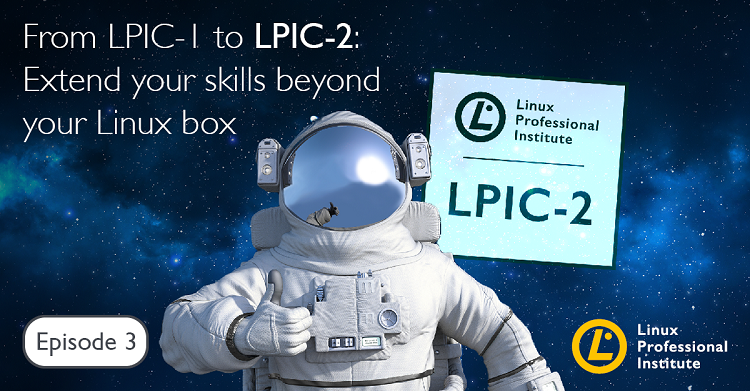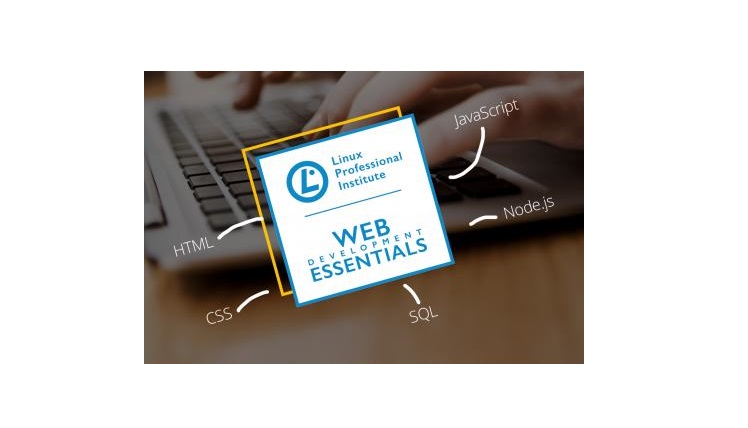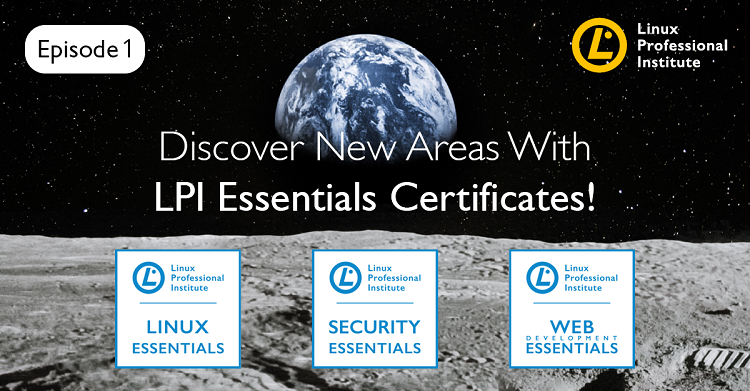Saturday, 27 May 2023
Supporting Our Community: Linux Clubs
Thursday, 25 May 2023
From LPIC-1 to LPIC-2: Boost Your Skills Beyond Your Linux Box
Tuesday, 23 May 2023
BSD Specialist Certification Unleashed: Crush Exam 702 and Redefine Your Career!
Why BSD Specialist Certification Matters
Demystifying Exam 702: Key Concepts and Topics
Preparing for Success: Expert Tips and Resources
The BSD Specialist Certification Advantage
Saturday, 20 May 2023
Linux Professional Institute Security Essentials: The Path to a Lucrative Cybersecurity Career!
In today's digital landscape, where cyber threats are constantly evolving, organizations around the world are seeking skilled professionals who can protect their sensitive data and systems from malicious attacks. As a result, the demand for cybersecurity experts has skyrocketed, offering a plethora of lucrative career opportunities. One certification that can pave the way to a successful cybersecurity career is the Linux Professional Institute Security Essentials (LPIC-1) certification. In this comprehensive guide, we will explore the benefits of obtaining this esteemed certification and how it can help you outrank other websites in the cybersecurity job market.
1. Understanding the LPIC-1 Certification:
The LPIC-1 certification is a globally recognized credential that validates the fundamental knowledge and skills required to secure Linux systems. Linux, being an open-source operating system, is widely used in various industries, making it a prime target for cyber attacks. By earning the LPIC-1 certification, you demonstrate your proficiency in securing Linux systems and gain a competitive edge in the cybersecurity field.
2. Building a Strong Foundation:
The LPIC-1 certification acts as a stepping stone for individuals aspiring to establish a successful career in cybersecurity. It equips you with a solid foundation in essential security concepts, such as access control, cryptography, network security, and vulnerability management. These foundational skills are highly sought after by employers, as they form the basis for advanced cybersecurity roles.
3. Enhancing Technical Expertise:
To become LPIC-1 certified, you must possess in-depth knowledge of Linux administration, which includes configuring, monitoring, and troubleshooting Linux systems. This expertise not only makes you proficient in securing Linux environments but also strengthens your overall technical capabilities. Employers value professionals with hands-on experience in Linux, making LPIC-1 a valuable certification for career advancement.
4. Demonstrating Industry Recognition:
The LPIC-1 certification is vendor-neutral, which means it is not tied to any specific Linux distribution. This flexibility makes it universally recognized by organizations across different sectors. When employers see LPIC-1 on your resume, they understand that you possess the necessary skills and knowledge to safeguard their critical assets effectively. This recognition can give you a significant advantage over other candidates in the competitive job market.
5. Expanding Career Opportunities:
With the LPIC-1 certification, you open the doors to a wide range of exciting career opportunities. Cybersecurity roles such as Security Analyst, Network Security Engineer, Penetration Tester, and Security Consultant are just a few examples of the diverse paths you can pursue. Furthermore, as the demand for cybersecurity professionals continues to rise, you can explore job prospects in industries like finance, healthcare, government, and technology, among others.
6. Staying Relevant in a Dynamic Field:
The field of cybersecurity is constantly evolving, with new threats emerging regularly. To stay ahead of the curve, professionals must continually update their knowledge and skills. The LPIC-1 certification demonstrates your commitment to professional development and showcases your ability to adapt to evolving security challenges. Employers value candidates who actively pursue certifications, as it reflects their dedication to staying current in the field.
7. Networking Opportunities:
Obtaining the LPIC-1 certification allows you to join a vast network of cybersecurity professionals and enthusiasts. Engaging with like-minded individuals can provide valuable insights, career guidance, and potential job opportunities. Networking through industry events, forums, and social media platforms enables you to stay connected with the latest trends and build relationships with influential figures in the cybersecurity community.
8. Continued Learning and Growth:
The LPIC-1 certification is not the endpoint of your cybersecurity journey but rather the beginning. It serves as a foundation for further specialization and advanced certifications. Once you have mastered the essentials, you can explore advanced certifications such as LPIC-2 and LPIC-3, which delve deeper into specific areas of Linux security and administration. These advanced certifications demonstrate your commitment to continuous learning and enable you to specialize in niche areas, making you an invaluable asset to organizations seeking highly skilled cybersecurity professionals.
9. Gaining a Competitive Edge:
In a competitive job market, setting yourself apart from other candidates is crucial. The LPIC-1 certification provides you with a distinct advantage by showcasing your dedication, expertise, and industry-recognized skills. Employers often prioritize certified professionals, as they can be confident in their ability to protect critical systems and data from cyber threats. By outranking other websites, you position yourself as a highly qualified candidate for coveted cybersecurity positions.
10. Practical Application of Knowledge:
The LPIC-1 certification not only equips you with theoretical knowledge but also emphasizes practical skills. Through hands-on exercises and real-world scenarios, you gain practical experience in securing Linux systems, mitigating vulnerabilities, and responding to security incidents. This practical application of knowledge enhances your problem-solving abilities, critical thinking skills, and decision-making capabilities, all of which are highly valued in the cybersecurity field.
11. Contributing to Organizational Security:
Obtaining the LPIC-1 certification enables you to make a significant impact on organizational security. By implementing robust security measures, you can safeguard sensitive information, prevent data breaches, and protect against cyber attacks. Your expertise in Linux security will be instrumental in creating a robust defense infrastructure, ensuring the confidentiality, integrity, and availability of vital resources. This ability to contribute to organizational security further strengthens your position as a valuable cybersecurity professional.
12. Staying Abreast of Industry Trends:
The field of cybersecurity is ever-evolving, with new threats and techniques emerging regularly. By pursuing the LPIC-1 certification, you commit to staying updated with the latest industry trends, best practices, and emerging technologies. This knowledge enables you to adapt quickly to the changing threat landscape, identify vulnerabilities, and implement proactive security measures. Employers value professionals who can stay ahead of the curve, making the LPIC-1 certification an excellent investment in your long-term career growth.
In conclusion, the Linux Professional Institute Security Essentials (LPIC-1) certification offers a comprehensive pathway to a lucrative cybersecurity career. By obtaining this globally recognized certification, you establish a strong foundation in Linux security, enhance your technical expertise, and gain industry recognition. The LPIC-1 certification opens the doors to diverse career opportunities, allows for continued learning and growth, and positions you as a competitive candidate in the job market. With practical knowledge, a commitment to staying updated, and a dedication to organizational security, you can excel in the dynamic field of cybersecurity.











